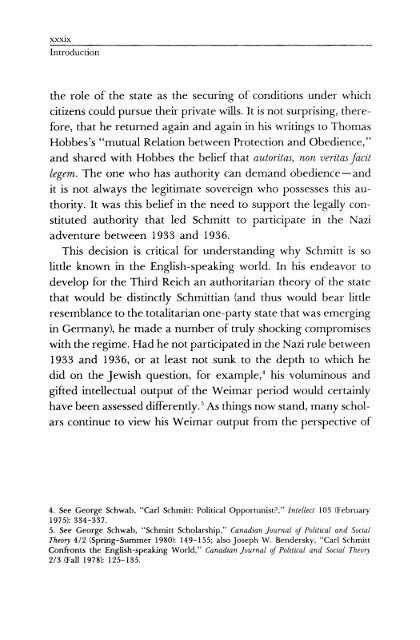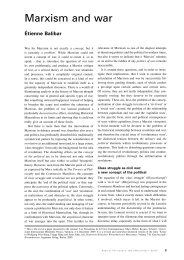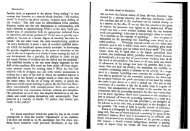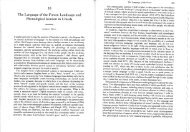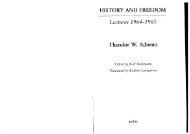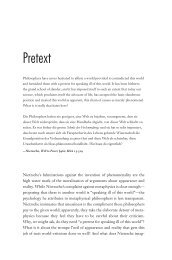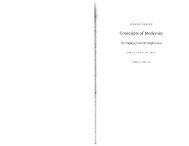Schmitt-Political Theology I.pdf - Townsend Humanities Lab
Schmitt-Political Theology I.pdf - Townsend Humanities Lab
Schmitt-Political Theology I.pdf - Townsend Humanities Lab
Create successful ePaper yourself
Turn your PDF publications into a flip-book with our unique Google optimized e-Paper software.
XXXlX<br />
Introduction<br />
the role of the state as the securing of conditions under which<br />
citizens could pursue their private wills. It is not surprising, therefore,<br />
that he returned again and again in his writings to Thomas<br />
Hobbes's "mutual Relation between Protection and Obedience,"<br />
and shared with Hobbes the belief that autoritas, non veritas facit<br />
legem. The one who has authority can demand obedience - and<br />
it is not always the legitimate sovereign who possesses this authority.<br />
It was this belief in the need to support the legally constituted<br />
authority that led <strong>Schmitt</strong> to participate in the Nazi<br />
adventure between 1933 and 1936.<br />
This decision is critical for understanding why <strong>Schmitt</strong> is so<br />
little known in the English-speaking world. In his endeavor to<br />
develop for the Third Reich an authoritarian theory of the state<br />
that would be distinctly <strong>Schmitt</strong>ian (and thus would bear little<br />
resemblance to the totalitarian one-party state that was emerging<br />
in Germany), he made a number of truly shocking compromises<br />
with the regime. Had he not participated in the Nazi rule between<br />
1933 and 1936, or at least not sunk to the depth to which he<br />
did on the Jewish question, for example,4 his voluminous and<br />
gifted intellectual output of the Weimar period would certainly<br />
have been assessed differently.5 As things now stand, many scholars<br />
continue to view his Weimar output from the perspective of<br />
4. See George Schwab, "Carl <strong>Schmitt</strong>: <strong>Political</strong> Opportunist?," Intellect 103 (February<br />
1975): 334-337.<br />
5. See George Schwab, "<strong>Schmitt</strong> Scholarship," Canadian Journal of <strong>Political</strong> and Social<br />
Theory 4/2 (Spring-Summer 1980): 149-155; also Joseph w. Bendersky, "Carl <strong>Schmitt</strong><br />
Confronts the English-speaking World," Canadian Journal of <strong>Political</strong> and Social Theory<br />
2/3 (Fall 1978): 125-135.


